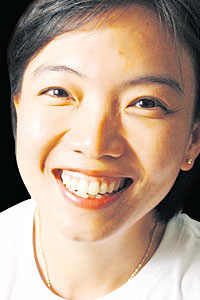Democracy icon Aung San Suu Kyi ended her first overseas trip in 24 years at a refugee camp in Mae La, Tak province, last Saturday. Three days earlier, she had been in Samut Sakhon to meet and address migrant workers from Myanmar.
Both visits were historic moments in a welcome turn of fate for the Myanmar opposition leader, and her stay in Thailand received massive coverage in the international media.
I was in Tak that day and was truly disappointed by the way government authorities tried to restrict media access to her, citing "security" reasons. That morning, before the plane carrying Suu Kyi landed at Mae Sot Airport, armed soldiers guarded its front entrance, allowing neither her supporters to enter the airport and welcome her, nor members of the press unless they were Tak-based and in the know of local authorities.
The previous evening the Tak governor had issued passes _ in the form of VIP tags _ but only to the local media.
When "external" journalists asked if they could have the same, the secretary to the governor said the tags were issued only to media they knew of. "If we let everybody in," he told me, "we will not know who is who. So we only allow the Tak-based media to get in," before adding that security was the main issue.
Before Suu Kyi's arrival, the atmosphere around the refugee camp was eerily quiet. The daily market that sits next to the camp's fence was closed. A group of migrants were held up at a checkpoint not far from there.
Not a single soul walked the road leading to the camp. Children playing outside the fence were called inside five minutes before Suu Kyi's car arrived, preceded by a police convoy.
Tailing her car was the media from Bangkok, already disappointed since they had earlier been denied entrance to the airport.
However, the press cars were blocked at the main gate of the refugee camp. They were searched. Those without VIP tags had to step out. A group of soldiers armed with rifles guarded the gate. They chained and locked the gate after all the vehicles had entered.
A bit of chaos flared as dozens of journalists from Bangkok representing news agencies from Japan, France and even Myanmar were not allowed to pass through. Some wondered if something wrong was going on inside and the local authorities did not want people to see it.
A government officer asserted himself and shouted above the noise: "It's an order from the governor. Those without VIP tags cannot pass through." Realising it was a rare chance for them to observe Suu Kyi inside a refugee camp, some journalists managed to sneak in. Inside the camp, a small number of refugees had gathered in a big football field to welcome her. Tun Tun, a Karen, was quoted by Voice Of America as saying he was a little disappointed that Suu Kyi did not get a chance to address refugees at the camp because the authorities would not allow her to proceed according to plan.
At the end of her visit she was escorted straight to the airport.
Five minutes' drive from there is Dr Cynthia's Mae Tao Clinic where hundreds of migrant workers attired in traditional and ethnic costumes lay in wait, patiently, holding pictures of her and her father Gen Aung San and welcome banners, some had stickers of her political party, the National League for Democracy, pasted on their faces.
They had set up a makeshift stage in the hope that she would address them from there.
When they learned that Suu Kyi would not stop at the clinic, they moved to the highway and waited under the midday sun with the high hope to be able to at least catch a glimpse of her.
Policemen gestured to them to remain sitting while her car was approaching. We looked at each other and wondered why we needed to be seated. Then hell broke loose!
Hundreds of people started running after her car. The car slowed down before reaching the airport gate, and Suu Kyi waved and smiled to them.
After the car was inside the airport, scores of sandals littered the highway, some lost in the melee after the crowd went scampering after her.
Many could not see her, let alone hear what they were longing to hear.
"It is a pity. I did not see anything," said a student who carried a framed picture of Suu Kyi in his hands.
The situation here was totally different to the time she visited her people in Mahachai in Samut Sakhon last Wednesday. I was there too, when no VIP tags and were issued to the media. Policemen facilitated the supporters by blocking off traffic on the road in front of Mahachai shrimp market.
Suu Kyi received roses from her supporters while some could even reach out to touch her hands. Suu Kyi delivered her speech via a loudspeaker from office of Migrant Worker Rights Network. Thousands who gathered heard her voice, and her message.
Such is the beauty of freedom and a memorable moment for all who happened to be in this country which is regarded as a model of viable democracy in Southeast Asia. Too bad, though, as to what happened in Mae Sot. It showed that the Tak governor and his authorities believed otherwise.
Karnjana Karnjanatawe is a travel writer for Life section of the Bangkok Post.
